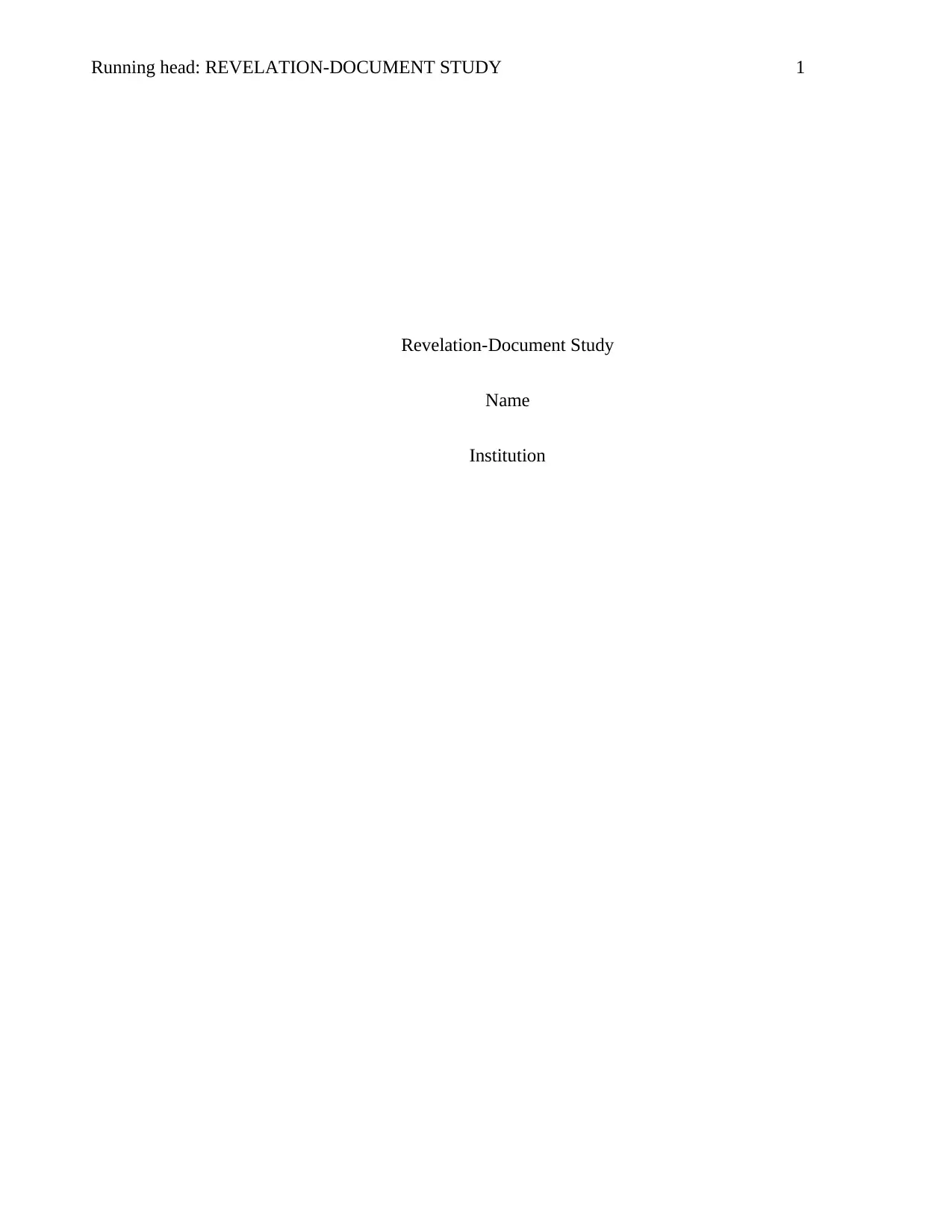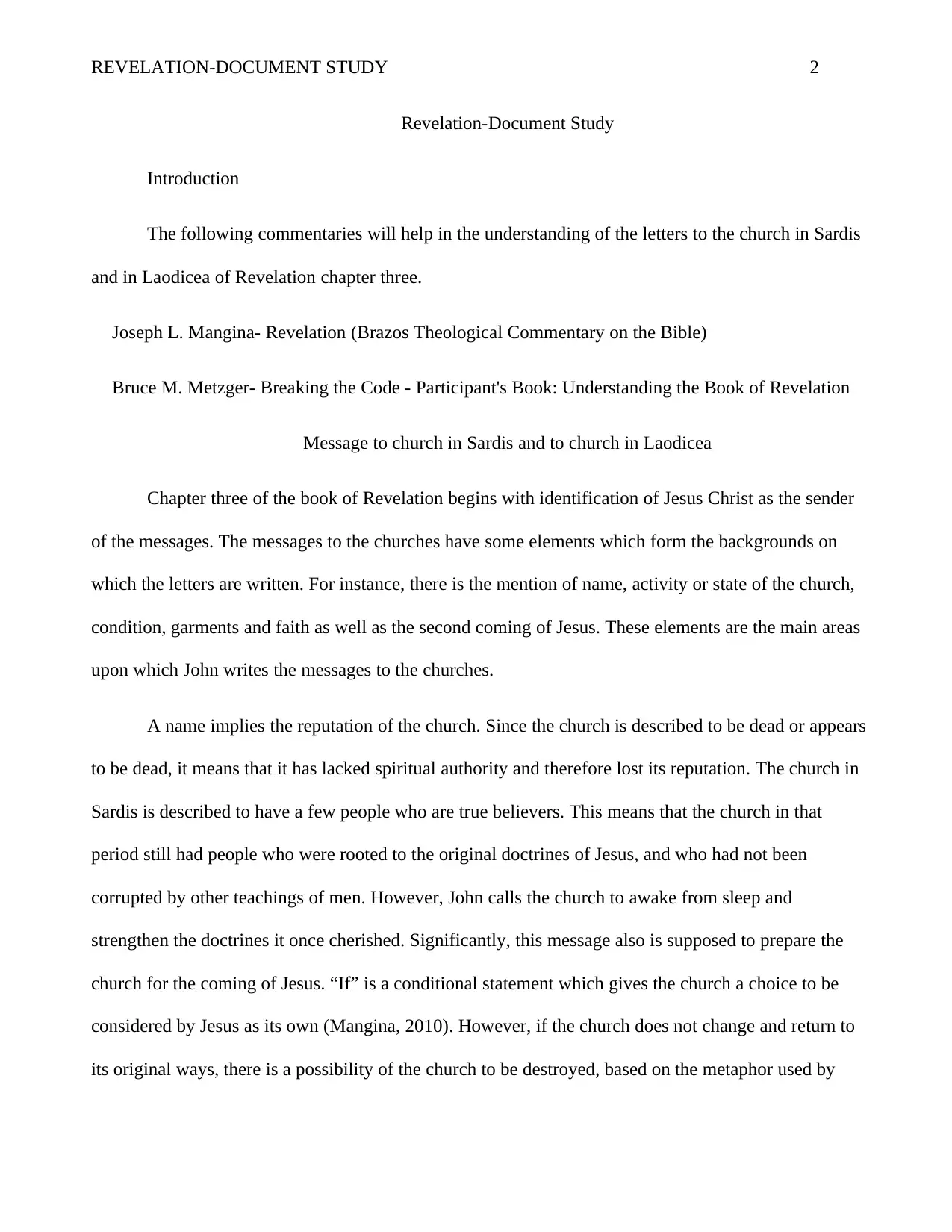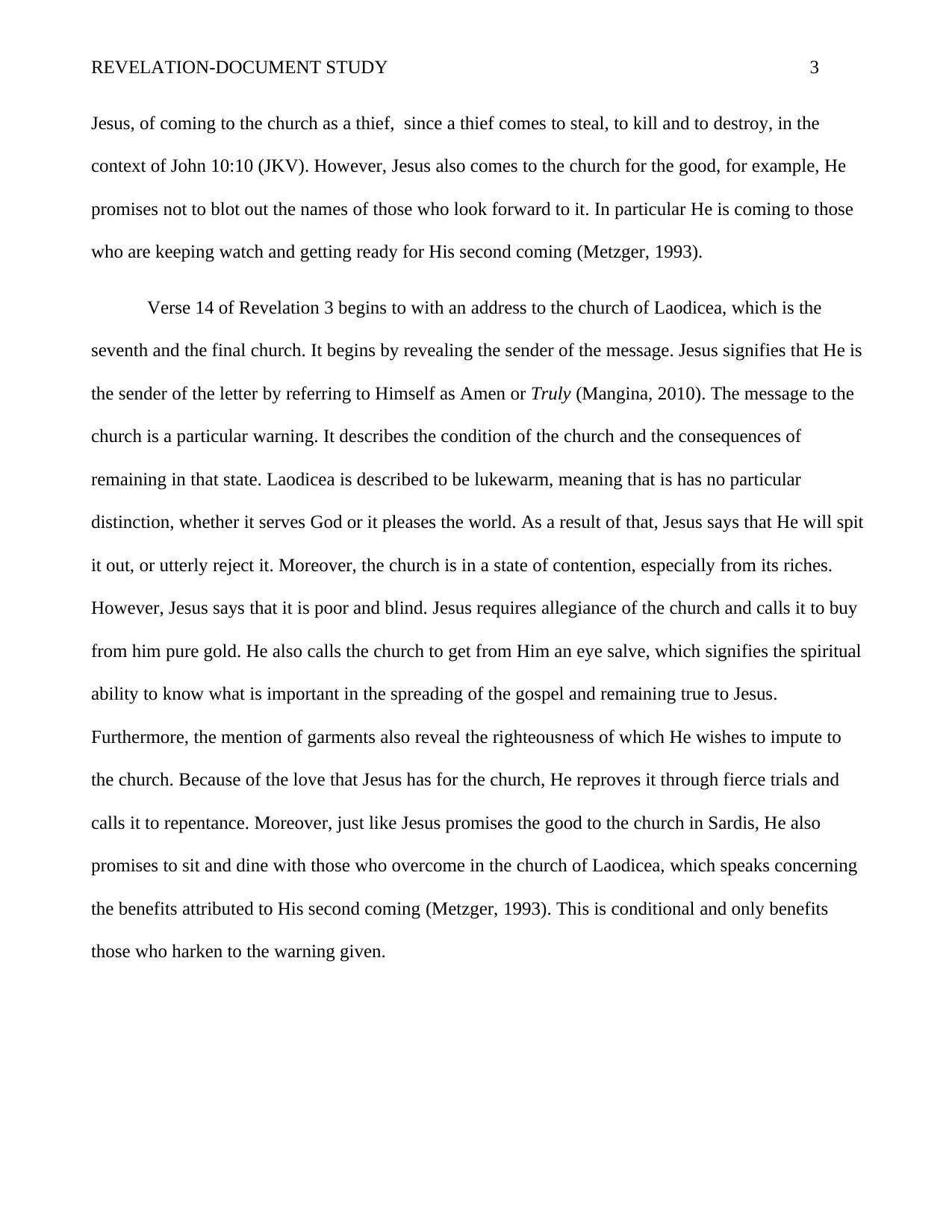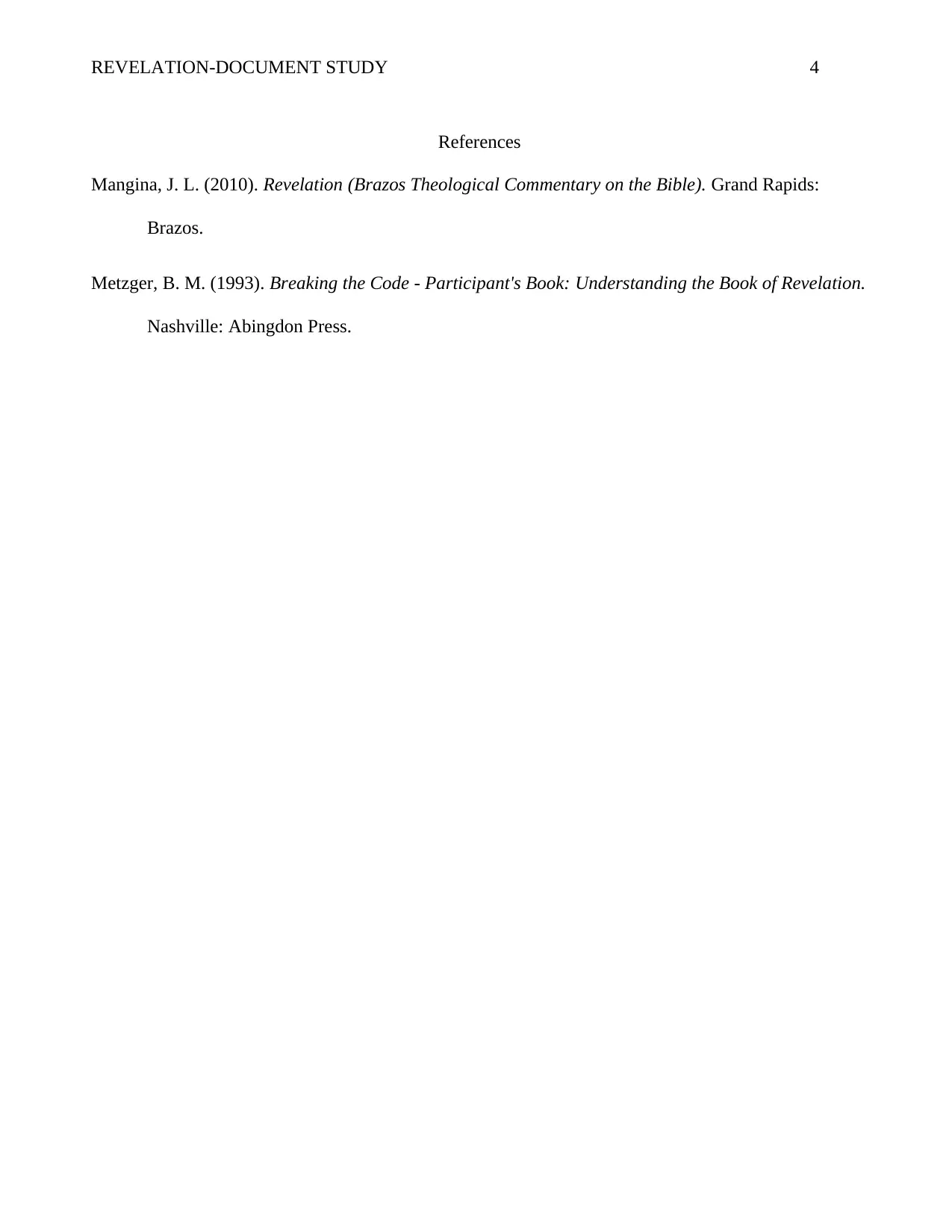Revelation Chapter 3: Study of Sardis and Laodicea Churches
VerifiedAdded on 2023/06/08
|4
|802
|222
Essay
AI Summary
This essay provides a document study of Revelation chapter 3, focusing on the messages to the churches in Sardis and Laodicea. It uses commentaries by Joseph L. Mangina and Bruce M. Metzger to understand the context and significance of these letters. The study examines elements such as the churches' reputations, spiritual states, and the warnings and promises given by Jesus. The message to Sardis emphasizes the need to awaken spiritually and strengthen original doctrines, while the message to Laodicea critiques the church's lukewarm condition and calls for repentance and allegiance to Jesus. Both messages highlight the importance of preparing for the second coming of Jesus and the conditional benefits offered to those who heed the warnings.
1 out of 4





![[object Object]](/_next/static/media/star-bottom.7253800d.svg)